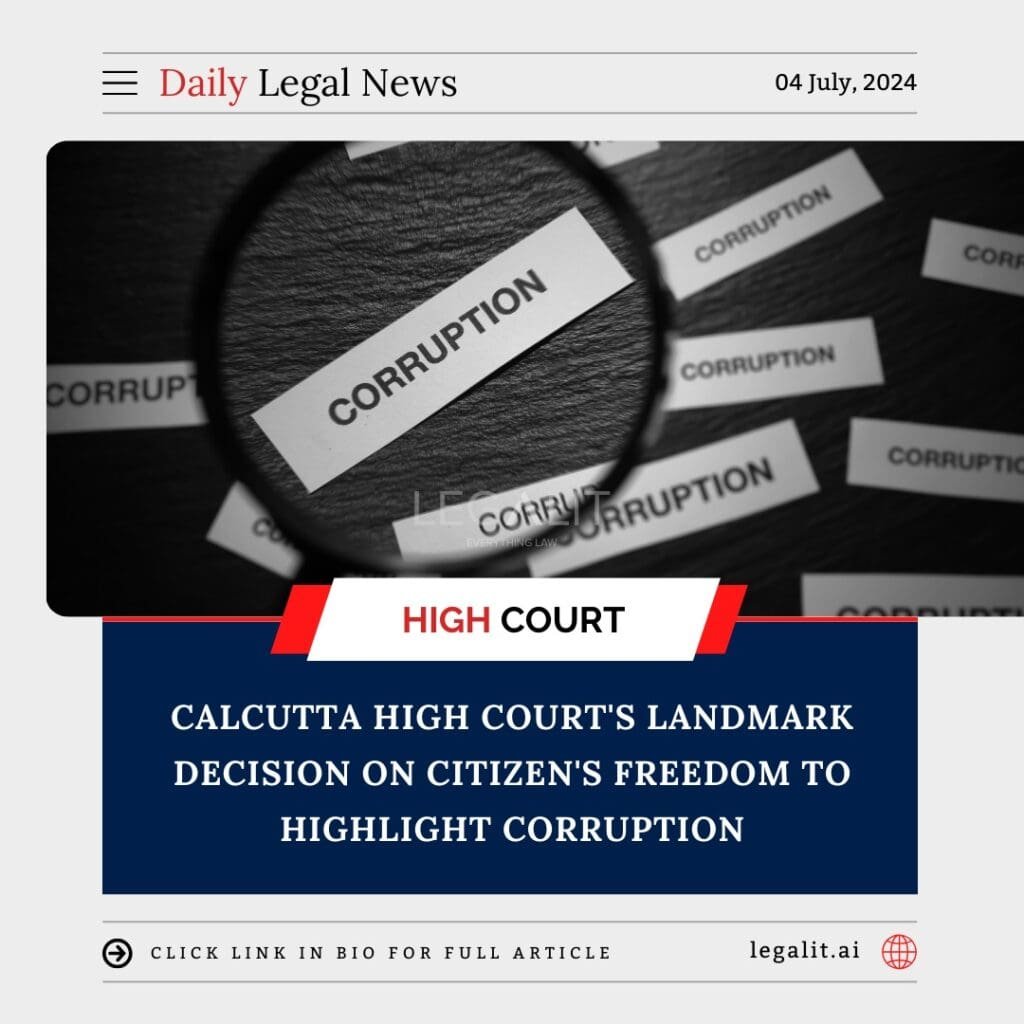
The Calcutta High Court recently delivered a significant ruling affirming that the police cannot curtail the freedom of citizens who highlight corruption, even if it involves members of the ruling party. This judgment underscores the protection of free speech and the right to expose corruption without fear of retaliation.
Case Background
The case involved allegations of corruption against a member of the ruling party. The petitioner, who had highlighted these allegations, faced police action that aimed to suppress his freedom of expression. The High Court took a strong stance against such actions by the police, emphasizing that curtailing a citizen’s freedom to expose corruption is unconstitutional and undermines democratic principles.
Court’s Observations
The High Court noted that freedom of speech is a fundamental right enshrined in the Constitution of India. This right includes the ability to criticize and highlight malpractices within the government and its officials. The court made it clear that the police, as an enforcement agency, should protect this right rather than act against it.
The court also stressed that any attempt to suppress such voices through intimidation or legal action not only violates individual rights but also hampers the broader fight against corruption. It called for stringent measures to ensure that citizens are not penalized for their efforts to bring transparency and accountability to governance.
Implications of the Ruling
This ruling has far-reaching implications for the protection of whistleblowers and activists who play a crucial role in exposing corruption. It reinforces the judiciary’s commitment to uphold democratic values and protect individuals from unjust persecution. By ensuring that citizens can freely report corruption, the ruling promotes a more transparent and accountable governance system.
Conclusion
The Calcutta High Court’s decision is a landmark in protecting citizens’ rights to free speech and the fight against corruption. It sends a strong message that the judiciary stands as a guardian of democratic principles, ensuring that individuals can voice their concerns without fear of reprisal. This ruling not only safeguards individual freedoms but also strengthens the foundation of a transparent and accountable political system.